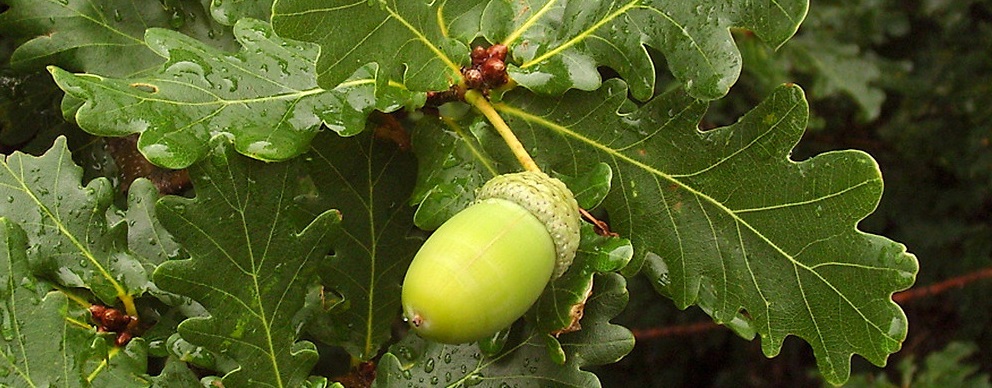
Acorns fall from oak trees between September and November, and are an important source of food for many birds and some mammals, such as squirrels.
But for many animals - including our beloved pets and livestock - they are extremely poisonous.
Many animals are susceptible to Quercus - or oak bud/acorn - poisoning, but cattle and sheep are affected most often. However, horses and dogs can become very ill if they consume acorns or oak leaves.
Most species of oak are considered toxic. If animals eat young oak leaves, during the spring, or acorns, during the autumn, symptoms of poisoning can begin to display within hours or after several days. However, if you are concerned that your animal has eaten anything that could be poisonous, rather than waiting for any symptoms to appear, you should consult a veterinary surgeon immediately.
Symptoms of acorn poisoning may vary between species, but include vomiting and diarrhoea, abdominal tenderness, depression, rapid weight loss, loss of appetite, tiredness and dehydration.
Acorns appear to contain tannins (a type of biomolecule) which get converted to acids in the rumen, these then cause ulcerations in the digestive tract leading to bloody diarrhoea. These acids also damage the kidneys, causing them to stop working so toxins which are normally excreted in the urine build up in the body and cause problems in the brain and the rest of the body, and can ultimately result in death.
If cattle and sheep are already displaying signs of poisoning then the prognosis can be poor.
Advice is to remove them from the source, give them plenty of water and consult a vet immediately. The vet might consider washing out the rumen via surgical procedure.
Dr Emily Coughlan, the RSPCA’s ruminants scientific officer, said: “Animals are unlikely to gorge on acorns if food is plentiful so I’d advise farmers and horse owners to ensure food doesn’t get too short in fields with oak trees.
“Monitor the animals and, if some are found to be eating excessive acorns, then move them to a different field or fence around the trees to limit their access.”
Although rarely reported, according to the Veterinary Poisons Information Service (VPIS), there have been some cases of severe acorn poisoning in horses. They can suffer from a range of symptoms, including colic, haemorrhagic diarrhoea, weakness, head pressing, and incoordination.
Dogs have also been known to fall ill if they have eaten acorns.
Dr Samantha Gaines, head of the RSPCA’s companion animals department, said: “It is difficult to watch your dog’s every movement but if owners are concerned that their dog will show interest in, or eat, acorns then it would be best to find a different place to exercise their dog away from where oak trees are present or take along something really tasty like a toy or treat so that their pet can be easily distracted and recalled.”
If you are concerned your animal may have been poisoned, contact the vet and tell them when, where and how the poisoning occurred
